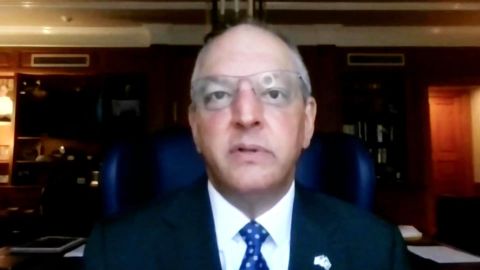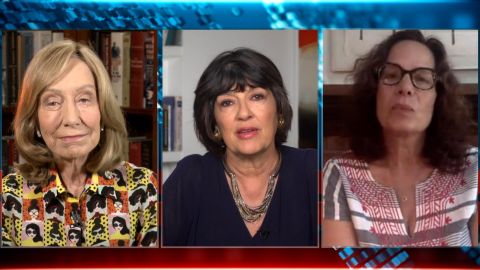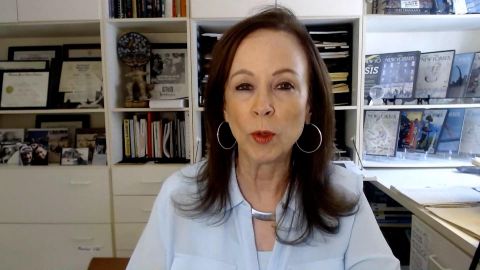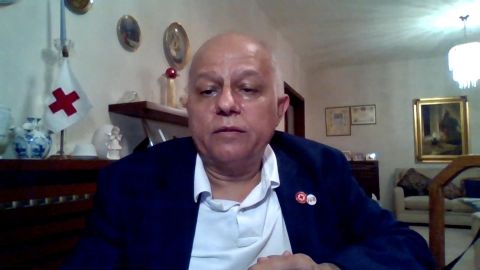Read Transcript EXPAND
GEORGES KETTANEH, SECRETARY-GENERAL, LEBANESE RED CROSS: As Lebanese Red Cross and according to the fundamental principles of Red Cross at present, we are trying to give a hope, with the support of the movement of Red Cross at present to continue supporting the community. And this is our challenge, how we can give hope to the vulnerable people. When we start responding one year ago, and it was a tragedy, a disaster, we did not know what happened. What’s going on? And we evacuate at night only — I’m not talking second day only — 2, 600 treated (INAUDIBLE) and, between them, some COVID cases from ICU. You know there’s four or five hospitals destroyed. And also we tried to help the community in giving cash for 11,000 families. So, we at Lebanese Red Cross, we tried to complement to help the community, saving lives and protecting the dignity of the community. This is what we are trying in primary health, in ambulance service, in blood for hospitals also and for these people, and, of course, in relief, and especially, and as you mentioned in your programs, in mental health, social support and restoring family links.
CHRISTIANE AMANPOUR: You know, Georges Kettaneh, you are trying to give help. Obviously, that’s what the Red Cross does around the world. And you are trying to give hope. You saw in our report from Ben Wedeman that hope is in very short supply. I want to ask you about the role of the Red Cross. You know, you have provided something like 80 percent of the ambulance services in a country where 80 percent of the hospitals and medical centers are private. This is stuff that the government should be doing, not necessarily the Red Cross. Explain what it takes when the Red Cross suddenly becomes the main public health sector.
KETTANEH: The Red Cross after civil war was replacing the government, especially the Ministry of Health, through an agreement in ambulance service. You call 140, like 911, the Red Cross will respond. And the Red Cross are independent, neutral, impartial to try to be accepted and respected and trusted by the community. Also, we’re leading in the blood bank, where we have 13 blood banks in the country. And, as I mentioned before about the primary health support and disaster management and relief and others, the role of the Red Cross in general, and the role of the movement of the Red Cross, Red Crescent, and supported by the federation, International Federation of Red Cross and Red Crescent and ICRC, international community, and our movement of Red Cross, we are trying always, as I say, to complement and to help the community. Our role is to give — to protect this dignity. And, as you mention, when the government or the state will reduce the mission, we will increase our response.
About This Episode EXPAND
Georges Kettaneh; Robin Wright; Doris Kearns Goodwin; Julia Sweig; John Bel Edwards
LEARN MORE



